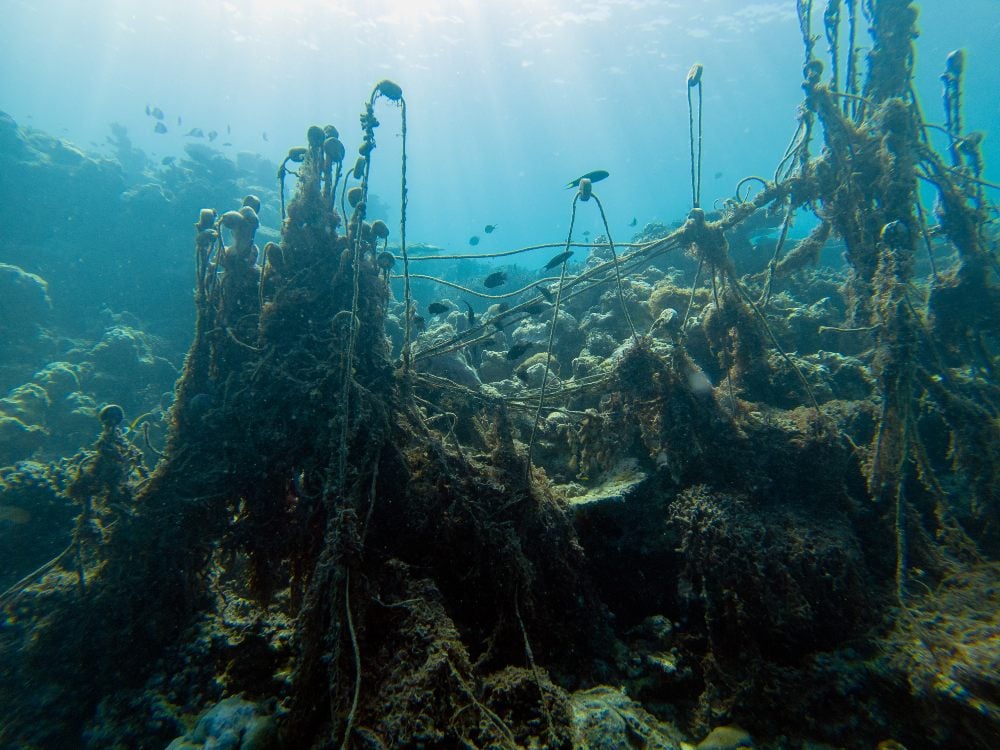Discarded fishing equipment, including nets, traps, and lines makes up the majority of the oceans’ large plastic pollution causing a major threat to marine life, says a new report from Greenpeace.
The date on ‘ghost gear’ says more than 640,000 tons of the equipment is ditched annually in the waters (the equivalent in weight of 55,000 double-decker buses), making up around 10 percent of all plastic waste in the marine environment.
Now the environmental charity is calling for international action to hold the ‘under-regulated fishing industry accountable’ and stop this plastic pollution in a bid to save sea animals.
Marine protection
Greenpeace says the majority of ghost gear is a result of unregulated and unreported fishing – but overcrowded fisheries are also part of the problem.
The charity is calling on the United Nations to agree to a Global Ocean Treaty by spring 2020, leading to the creation of a worldwide network of protected areas, covering 30 percent of the world’s ocean by 2030.
‘Holding the industry accountable’
“Ghost gear is a major source of ocean plastic pollution and it affects marine life in the UK as much as anywhere else,” Louisa Casson, oceans campaigner at Greenpeace UK, said.
“The UK’s waters do not exist in a vacuum as oceans have no borders. The world’s governments must take action to protect our global oceans, and hold the under-regulated fishing industry to account for its dangerous waste.
“This should start with a strong global ocean treaty being agreed at the United Nations next year.”
‘Threat to wildlife’
“Nets and lines can pose a threat to wildlife for years or decades, ensnaring everything from small fish and crustaceans to endangered turtles, seabirds and even whales,” added the report.
“Spreading throughout the ocean on tides and currents, lost and discarded fishing gear is now drifting to Arctic coastlines, washing up on remote Pacific islands, entangled on coral reefs and littering the deep seafloor.
“Poor regulation and slow political progress in creating ocean sanctuaries that are off-limits to industrial fishing allow this problem to exist and persist.”






